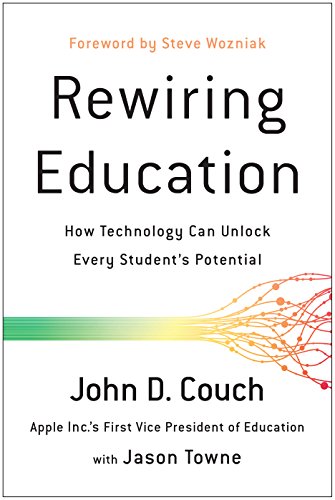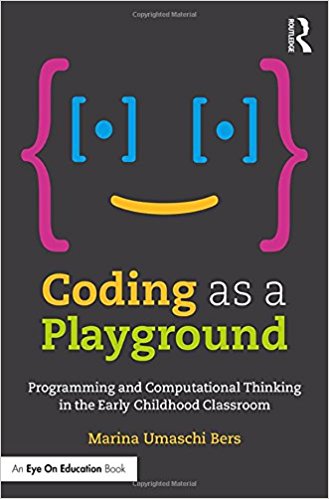
Looking for a great book to bring along on your summer vacation? eLearning Inside News offers just a few recommendations for readers who share our enthusiasm for everything edtech. In addition to recommending several new releases, we’ve included one classic book to round out your summer reads on edtech.
Summer Reads on EdTech
Rewiring Education: How Technology Can Unlock Every Student’s Potential
 Author: John Couch
Author: John Couch
Press: BenBella Books
Year: 2018
In Rewiring Education, John Couch, former Vice President of Education at Apple, Inc., shares what he learned about education and technology over the course of his 50-year career. He unpacks findings of Apple’s major research studies on education and explores the impact of the company’s Challenge-Based Learning framework. Rewiring Education offers a proposal for the future of education and how emerging technologies can be leveraged to ensure no child is ever left behind.
Families at Play: Connecting and Learning through Video Games
Diversifying Digital Learning: Online Literacy and Educational Opportunity
Coding as a Playground: Programming and Computational Thinking in the Early Childhood Classroom
 Author:
Author:
Press: Routledge
Year: 2017
With the rise of coding bootcamps over the past decade, it seems like everyone is talking about the potential of coding and how it can be taught, but Coding as a Playground is the first book to focus exclusively on how young children (ages 7 and under) can also learn about computational thinking and be taught to code. Readers of Coding as a Playground will discover how and why to teach coding at a young age is beneficial and how it can influence child development.
The Art of Game Design
 Over the past decade, The Art of Game Design: A Book of Lenses has become a must-read book for anyone interested in gamification. In the book, Jesse Schell, the founder and CEO of Schell Games, offers insight into now the basic principles of psychology that work for board games, card games, and athletic games also are key elements of making top-quality videogames. In short, he shows how great game design happens when designers offer different perspectives or lenses. While no longer a new book, The Art of Game Design is still highly recommended to anyone interested in “serious play.”
Over the past decade, The Art of Game Design: A Book of Lenses has become a must-read book for anyone interested in gamification. In the book, Jesse Schell, the founder and CEO of Schell Games, offers insight into now the basic principles of psychology that work for board games, card games, and athletic games also are key elements of making top-quality videogames. In short, he shows how great game design happens when designers offer different perspectives or lenses. While no longer a new book, The Art of Game Design is still highly recommended to anyone interested in “serious play.”

 Authors:
Authors: 






No Comments